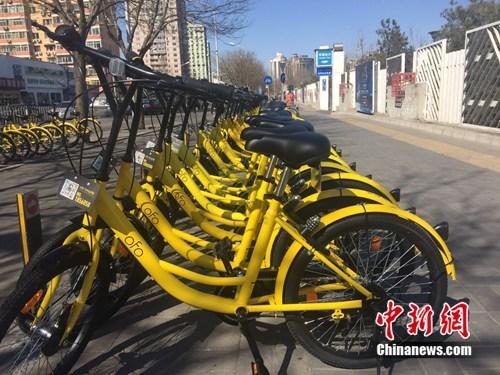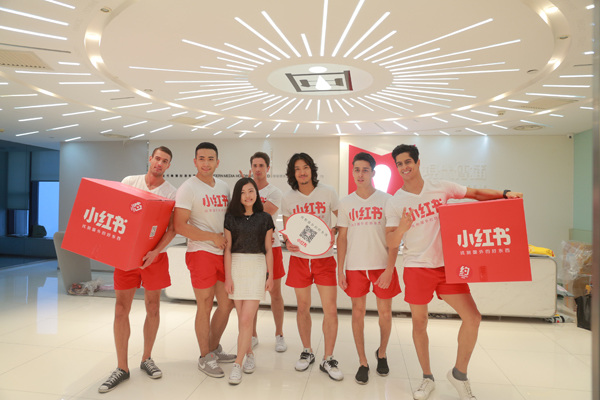Unilever prepares sale of food brands: newspapers
March 20th, 2017Unilever is preparing a 6 billion pound ($7.44 billion) sale of some of its food brands, British newspapers reported on Saturday.
The Anglo-Dutch company is planning to sell Flora margarine and Stork butter brands, the Sunday Times said.
The Sunday Telegraph, which also cited a figure of 6 billion pounds, quoted sources as saying private equity firms Bain Capital, CVC and Clayton Dubilier and Rice have started working on offers for these businesses. Unilever did not immediately respond to a Reuters request for comment.
The maker of Knorr soups, Dove soap and Ben & Jerry's ice cream rebuffed a surprise $143 billion takeover offer from Kraft Heinz last month, stating that the group "sees no merit, either financial or strategic, for Unilever's shareholders."
The company has launched a business review to consider returning cash to shareholders, making medium-sized acquisitions and more aggressive cost cuts, the Financial Times reported on Wednesday. In a report released in January, Unilever stated that its food business sector sustained its return to growth, driven by the packs with easy-out technology and organic variants.
Shared bikes revitalize cycle industry
March 16th, 2017
Ofo bikes around Chaoyang Park in Beijing.
Until fairly recently, bicycle production had been considered a sunset industry, but a nationwide resurgence caused by the popularity of shared bikes has given it a second lease of life.
Li Dewu, the manager of a bike production company based in Shenzhen says he never expected such a spike in demand.
Last year the downturn in demand had Li worried about his business, but an order for thousands of shared bikes just before the Chinese New Year turned things around. Li described the major deal as a second madness in his twenty year career that made him both excited and yet also a little nervous.
Hu Zefeng, who runs a cycle production company in Shenzhen, also had a busy few months with deals for over 1.5 million bikes received in total. "We have employed about 500 new workers and added 7 more assembly lines from Shenzhen to Tianjin." Hu said.
The demand for bike parts and accessories has also seen a boost. Du Kaishan, manager of a bike saddle provider said: "my factory is over loaded now, with hundreds of thousands saddles having to be made in a single deal every month."
The ubiquitous shared bikes are causing a stir in China. Companies such as Ofo and Mobike have over 10 million registered users and distribute cycles to every corner of cities including Beijing and Shanghai.
According to statistics from the China Cycle Association, over 2 million shared bikes have been placed in more than 30 cities in China since 2016.
Pricier cycles
The expansion in the shared bike market has, however, been accompanied by a rise in the price of cycles. Producers have raised their prices by 5 percent on average, according to The Paper.
A manager at a cycle assembly factory in Suzhou said the high demand for shared bikes had resulted in a shortage of cycle supplies, which influences the cost of the end product.
An industry insider said another element triggering pricier bikes is the rising price of steel and rubber, the raw materials used to make cycle frames and tires. Some types of steel have seen a 35 percent increase in prices over the last year, rubber nearly 70 percent.
Most of the cycle producers though said that they would continue with the original price of each bike or perhaps raise it a little for regular clients. Ofo, Mobike and new business entrant Bluegogo have all denied that the cost of their cycles has gone up.
China enhances crackdown on capital market fraud
March 15th, 2017World Consumer Rights Day has arrived, and China plans to enhance its crackdown on capital market fraud.
The country's top securities regulator, the China Securities Regulatory Commission (CSRC), announced last Friday that it would impose the maximum penalty on office service provider China Nine Top and AnShan Heavy Duty Mining Machinery for severe violations of information disclosure rules.
China Nine Top is reported to have inflated its revenue and bank deposits while covering up an assets gap in order to restructure with the listed company AnShan Heavy Duty Mining Machinery.
Besides exposing companies faking assets to get listed, securities watchdogs have punished other capital market counterfeit practices such as inflating financial performance to avoid delisting, and fraudulent initial public offerings using fake documents.
In order to stay on the stock market, a property developer close to being delisted due to poor financial performance turned a profit from a loss in 2016 by selling part of its equity at an over-valued price in the fourth quarter, according to the Shenzhen Stock Exchange.
There will be enhanced supervision over year-end asset selling, and restructuring to crack down upon profit manipulation, according to the stock exchange.
In February, the CSRC announced 20 representative illegal stock market cases of 2016, including the high-profile case of Dandong Xintai Electric, the first company to be forced to delist from the Chinese stock market due to IPO disclosure cheating.
"We will continue to expose some influential fraud cases in areas like restructuring and acquisition," said Liu Shiyu, head of the CSRC, late February. "For wrongdoings on the capital markets, we will follow and treat them in a timely and tough manner."
The CSRC imposed 139 administrative punishment decisions last year, 13 as cases of financial fraud.
"Listed companies are profit-seeking, and it seems that they can get more than what they might have to pay for, by cheating, so they make reckless moves to try their luck," said Tian Lihui, a financial professor with Nankai University. "So there should be harsher punishment, and most importantly, improvement of the legal framework of the capital market, such as stricter requirements for information disclosure."
Meanwhile, regulators are also working on improving the delisting mechanism to improve the overall quality of the stock market and regulate backdoor listing.
"The CSRC will require stricter information disclosure to deter financial cheating, urge intermediaries like accounting agencies and stock exchanges to fulfill due responsibility and modify delisting standards," said Jiang Yang, deputy head of the CSRC, last week.
Lincoln to make SUV in China with Chang'an Auto Group
March 14th, 2017Lincoln, the luxury unit of Ford Motor Co, said on Monday that it plans to build a luxury sport utility vehicle in China in partnership with the Chang'an Automobile Group.
The as-yet unnamed vehicle will be built at a plant in the city of Chongqing. It is scheduled to go on sale in late 2019 only in China, the world's largest auto market, according to Lincoln spokesman Said Deep.
Building in China will help Lincoln meet growing customer demand and enable the company to become more responsive to changing customer preferences, Deep wrote in an email. "As Lincoln grows in China it makes sense to produce this new SUV in China," he added.
Lincoln exports its vehicles from North America to China, and reported sales of 32,558 in 2016, three times more than it sold in 2015.
Ford and its joint venture partners sold a record 1.27 million vehicles in China last year. Lincoln isn't the only US luxury brand taking aim at China. General Motors said its Cadillac volume in China rose 46 percent in 2016 to 116,406 , the first time it passed 100,000 vehicles in China in a single year.
Boeing's first overseas factory to be built in China's Zhoushan
March 13th, 2017Boeing and Chinese aviation manufacturer Commercial Aircraft Corporation of China Ltd.(COMAC) will start to build a Boeing 737 completion center in eastern China's Zhoushan city at the end of March, scheduled to make its first delivery in 2018.
This is Boeing's first overseas facility as part of its 737 production system, and designed to deliver 100 Boeing 737 planes a year.
In the joint-venture completion center, Boeing's 737 aircraft will be installed with flight entertainment systems and seats. The plant in Zhoushan, 287 km southeast of Shanghai, also provides services such as coating, repair and maintenance of Boeing aircraft.
Boeing and COMAC signed an agreement in October 2016 to set up the Zhoushan plant, which will consist of two parts: the 737 completion center, a joint venture of Boeing and COMAC, and the 737 delivery center owned by Boeing.
Construction of the delivery center will also start at the end of March.
To accommodate aircraft manufacturing in Zhoushan, Putuoshan Airport in the city is undergoing a 750 million yuan (108 million U.S. dollars) expansion to become an international airport.
In addition to supporting Boeing, the aviation base in Zhoushan will also develop an entire industrial chain for aircraft manufacturing, with the capacity of assembling, delivering and modifying 600 aircraft a year by 2025.
Zhoushan is an archipelago and island city in Zhejiang Province, which has the largest fishery in China and boasts strong shipbuilding, tourism and service industries.
5% listed Chinese companies led by females
March 8th, 2017
A female user of Red (Xiao Hongshu) poses with the company's staff at its anniversary celebration in Shanghai.
About one in every 20 A-share companies is led by female, according to a report by Securities Times released on International Women's Day on Wednesday.
The number of chairwomen in Chinese mainland-listed firms totals 151, accounting for 5 percent of all top posts. Equipment manufacturing, pharmaceuticals, chemical engineering, real estate, and automobile are the top five industries with most female business leaders.
About 70 percent of the chairwomen were born in the 60s or 70s, according to the report. Corporate head Hu Jiajia of Shanghai Metersbonwe Fashion & Accessories Co and Liu Xiaoqing of Dalian Yi Qiao Sea Cucumber Co, both 30, are the youngest.
Of the 153 A-share firms run by women, 56 are listed on Shanghai Stock Exchange, 45 on Shenzhen small-and-medium enterprise board, and 31 on NASDAQ-styled ChiNext board.
Among the 145 chairwomen who have disclosed their education background, four have doctorate degree and 10 have studied abroad, noted the report.
According to a survey by professional networking site LinkedIn, 44 percent of all senior management roles in companies were held by women last year.
The need to balance family obligations and pressure from society are still believed to be major obstacles for women in the business world.